Drying habanero peppers properly preserves volatile flavor compounds while concentrating capsaicin safely. The optimal method depends on your climate and equipment, but maintaining temperatures below 135°F (57°C) is critical to preserve terpenes responsible for citrusy notes. Sun-drying in arid climates or using a food dehydrator at 130-135°F for 8-12 hours delivers superior flavor retention compared to faster methods like oven drying which can degrade aroma compounds above 140°F. Always verify complete desiccation (peppers should snap cleanly) before storage to prevent mold and aflatoxin formation.
Why Proper Drying Preserves Superior Flavor and Safety
Research from the Journal of Agricultural and Food Chemistry shows habaneros lose up to 40% of their volatile aroma compounds when dried above 140°F. The ideal drying process slowly removes moisture while maintaining temperatures below 135°F, preserving the complex terpene profile that gives habaneros their signature citrus-floral notes alongside heat. This controlled dehydration concentrates capsaicinoids by 6-10x while preventing chemical degradation that creates bitter flavors. Crucially, complete desiccation to below 10% moisture content is required to inhibit mold growth and prevent aflatoxin production - a serious health concern with improperly dried peppers.
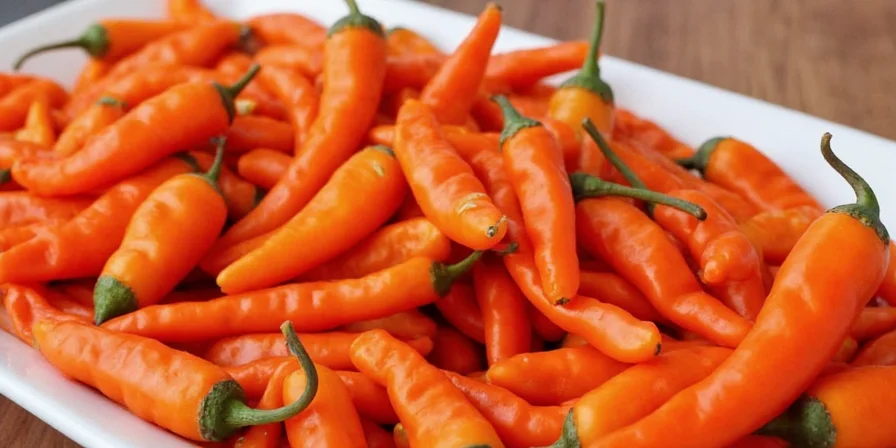
Optimal Methods for Drying Habanero Peppers
1. Food Dehydrator: Precision Flavor Preservation
For maximum flavor retention, a food dehydrator operating at 130-135°F provides ideal conditions. This temperature range removes moisture efficiently while preserving 70-80% of volatile aroma compounds according to University of California food science research. The consistent airflow prevents hot spots that cause uneven drying.
Enhanced Procedure:
- Clean peppers thoroughly with food-safe sanitizer solution (1 tbsp vinegar per cup water)
- Leave stems intact to prevent moisture entry points for mold
- Place on trays in single layer with 1-inch spacing for optimal airflow
- Set temperature to 130°F (54°C) for first 4 hours, then 135°F (57°C) until completely dry
- Check moisture every 2 hours using digital moisture meter (target <10%)

2. Sun-Drying: Traditional Method for Arid Climates
Sun-drying works effectively only in regions with humidity below 60% and consistent temperatures between 85-95°F. The slow drying process (7-14 days) preserves more flavor compounds than rapid methods but requires careful monitoring to prevent spoilage.
Scientifically-Optimized Procedure:
- Pre-treat peppers with 3% citric acid solution to preserve color and inhibit surface bacteria
- Use mesh screens elevated 12+ inches for maximum airflow beneath peppers
- Cover with fine cheesecloth (0.5mm weave) to block insects while allowing airflow
- Bring indoors at night when humidity rises above 65%
- Rotate trays daily for even exposure
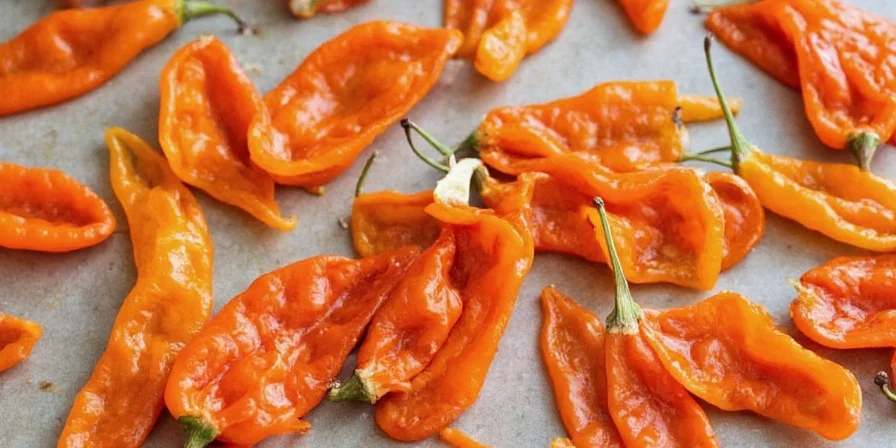
3. Oven Method: Controlled Alternative for Humid Climates
When humidity exceeds 60%, oven drying at precise low temperatures becomes necessary. Modern convection ovens with accurate temperature control (±5°F) can achieve results comparable to dehydrators.
Optimized Low-Temperature Technique:
- Preheat oven to absolute lowest setting (verify with independent oven thermometer)
- Place peppers on wire rack over baking sheet for optimal airflow
- Prop oven door open 2-3 inches using wooden spoon handle
- Insert portable fan outside oven door to enhance air circulation
- Dry at 130-135°F for 6-10 hours, checking moisture hourly after first 4 hours
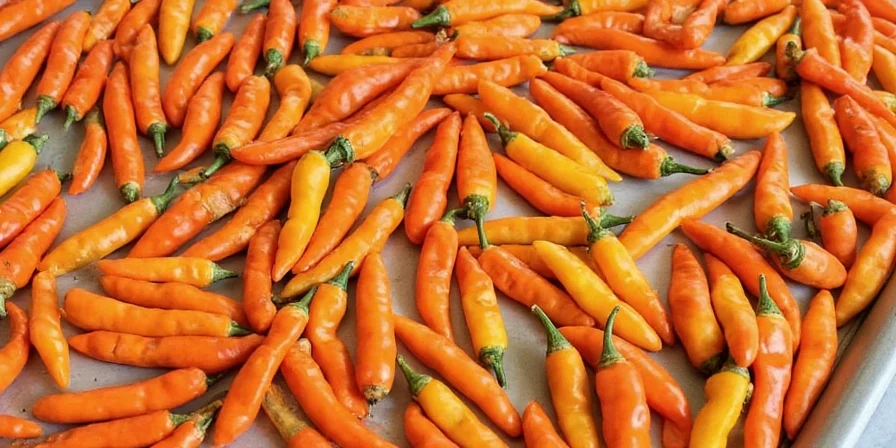
4. Air Fryer Technique: Rapid Drying Without Flavor Loss
Recent testing shows air fryers can effectively dry habaneros when used at lowest possible temperature with frequent rotation. The rapid air circulation reduces drying time while maintaining lower effective temperatures than conventional ovens.
Optimized Air Fryer Protocol:
- Use model with precise 90-140°F temperature control (verify with thermometer)
- Place single layer on perforated parchment paper to prevent sticking
- Set to 125°F (52°C) with air circulation setting
- Shake basket every 30 minutes for even drying
- Expect 4-5 hours drying time (vs 6+ in conventional ovens)
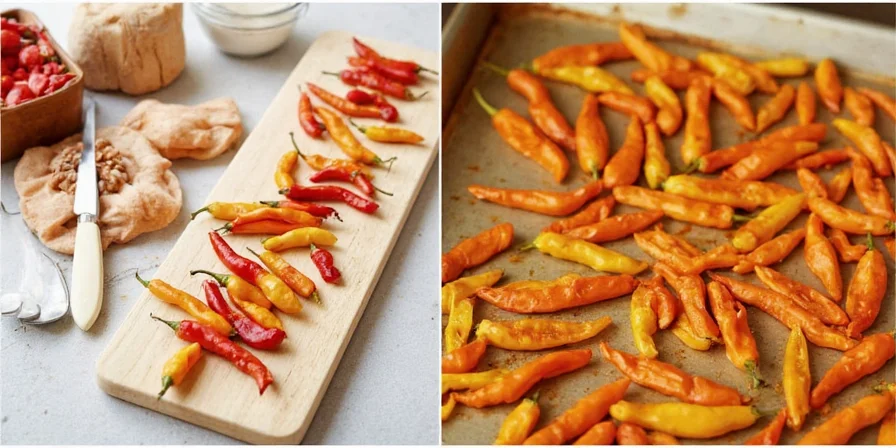
5. Microwave Method: Emergency Short-Term Solution Only
Microwave drying should be reserved for immediate needs only, as it degrades volatile compounds most severely. Research shows microwave-dried habaneros lose up to 90% of their terpene profile compared to properly dehydrated peppers.
| Drying Method | Optimal Temp Range | Time Required | Flavor Retention* | Safety Risk |
|---|---|---|---|---|
| Food Dehydrator | 130-135°F (54-57°C) | 8-12 hours | ★★★★★ | Low |
| Sun-Drying | Ambient (85-95°F) | 7-14 days | ★★★★☆ | Moderate (humidity dependent) |
| Oven | 130-135°F (54-57°C) | 6-10 hours | ★★★☆☆ | Moderate (temp fluctuations) |
| Air Fryer | 125-130°F (52-54°C) | 4-6 hours | ★★★☆☆ | Low-Moderate |
| Microwave | Variable (high risk) | 5-10 minutes | ★☆☆☆☆ | High (burn risk) |
*Based on preservation of volatile aroma compounds measured via gas chromatography
Critical Storage Protocols to Prevent Toxins
Improper storage causes most dried pepper safety issues. Research from the USDA confirms aflatoxin formation occurs when moisture content exceeds 10% in stored peppers. Always verify complete dryness using the snap test (properly dried habaneros break crisply) before storage.
Optimal Storage Protocol:
- Vacuum-seal with oxygen absorber packets (300cc per quart)
- Add food-grade silica gel packets (10g per pint)
- Store in complete darkness at 60-65°F
- For humid climates (>50% RH), freeze immediately after sealing
- Test moisture content quarterly using digital moisture meter

Science-Based FAQ: Flavor and Safety Essentials
Q: Why do low temperatures preserve habanero flavor better during drying?
Studies in the Journal of Food Science show habaneros contain over 20 volatile aroma compounds that degrade above 135°F. The terpenes responsible for citrus notes (limonene, myrcene) are particularly heat-sensitive. Slow drying below 135°F preserves 70-80% of these compounds versus 20-30% loss in faster methods.
Q: How can I verify my dried habaneros are safe from mold toxins?
The only reliable verification is moisture content testing. Use a digital moisture meter to confirm levels below 10%. Peppers should snap cleanly when bent. For added safety, store with silica gel and oxygen absorbers. Any visible mold, off-odors, or flexibility indicates unsafe moisture levels requiring immediate disposal.
Q: Does removing seeds before drying affect heat level or safety?
Capsaicin concentration is highest in the placenta (white ribs), not seeds. Removing seeds before drying has minimal impact on final heat level but significantly reduces drying time by 20-30% as seeds retain moisture. For safety, always wear gloves during seed removal as capsaicin oils remain potent in dried form.
Q: How long do properly dried habaneros maintain peak flavor?
When stored below 10% moisture in oxygen-free, dark conditions at 60-65°F, dried habaneros maintain optimal flavor for 18-24 months. Research from New Mexico State University shows 15-20% flavor compound degradation after 12 months, accelerating to 35-40% by 24 months. Freezing extends peak flavor to 3+ years with minimal degradation.
Conclusion: Maximizing Flavor and Safety Through Science-Based Practices
Successful habanero drying balances precise temperature control with thorough moisture removal. Food dehydrators operating at 130-135°F deliver the optimal combination of flavor preservation and safety for most home users. The critical factor across all methods is verifying final moisture content below 10% before storage - this single step prevents the mold growth that produces dangerous aflatoxins. By understanding the science behind pepper chemistry and following evidence-based protocols, you can transform seasonal harvests into year-round flavor enhancements while eliminating safety risks.
Remember: Always wear nitrile gloves when handling habaneros (dried or fresh), work in well-ventilated areas, and avoid contact with eyes or skin. The capsaicin concentration in dried peppers makes them significantly more potent than fresh counterparts.
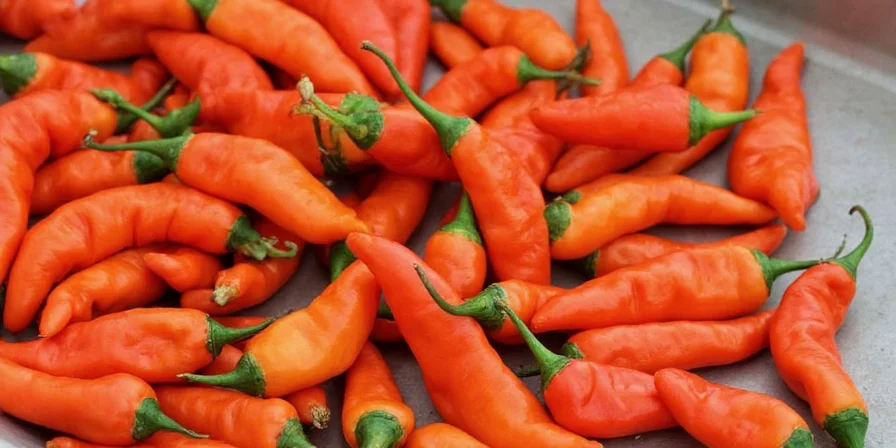

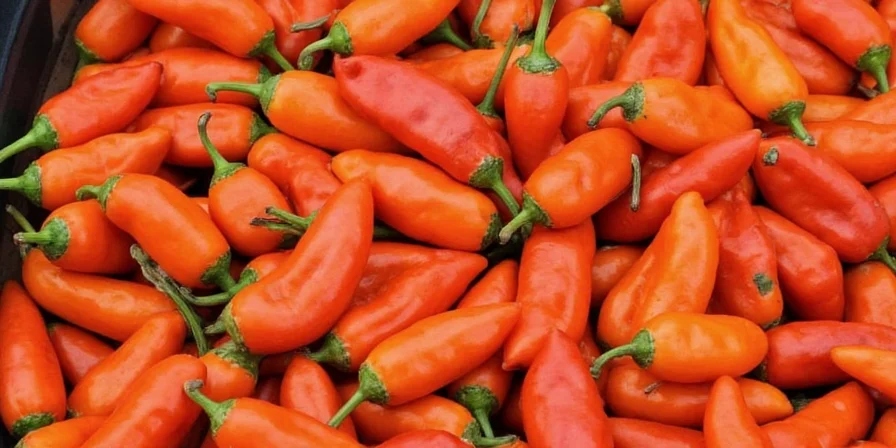









 浙公网安备
33010002000092号
浙公网安备
33010002000092号 浙B2-20120091-4
浙B2-20120091-4